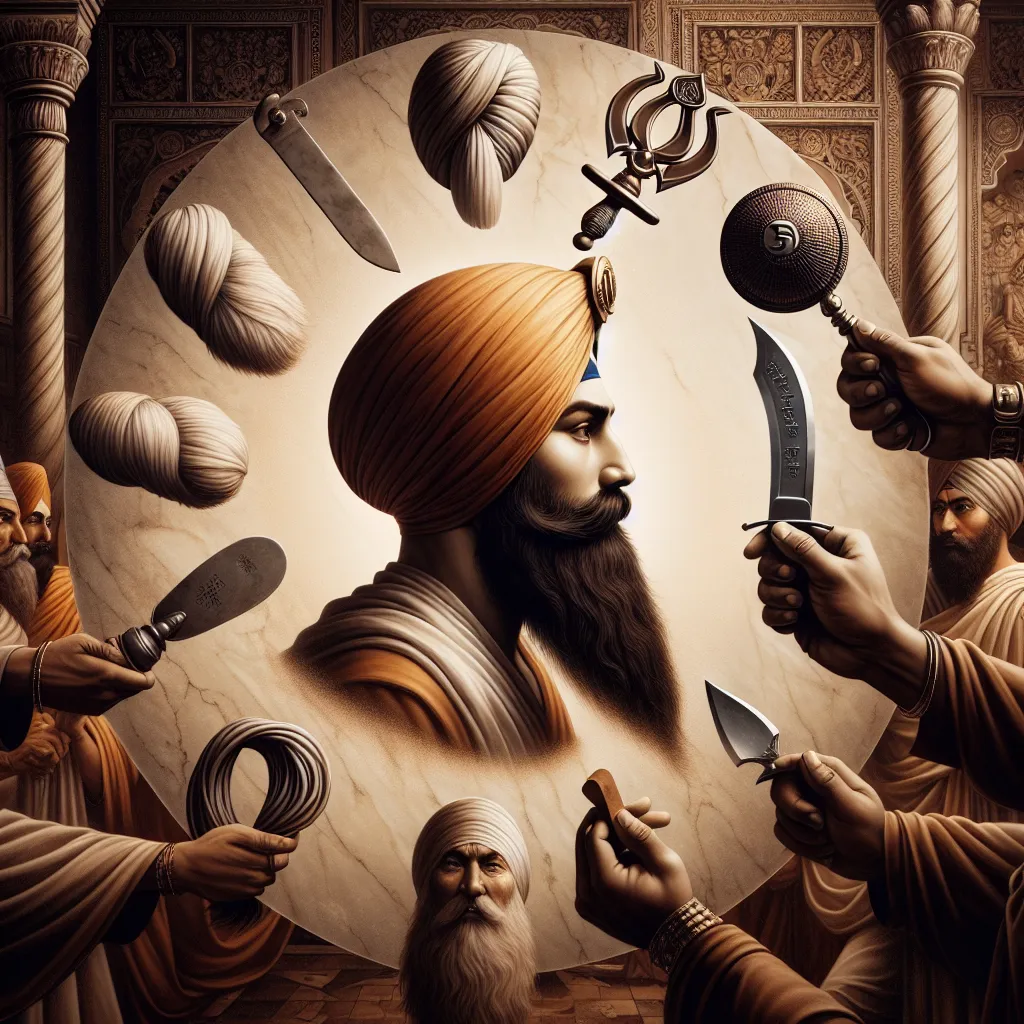
- Published on
- Authors

- Name
- You
Introduction
The Sikh Rehat Maryada is the official code of conduct and conventions for Sikhs, meticulously outlined to guide the community in living lives rooted in righteousness, devotion, and discipline. By examining the intersections of historical precedents, ethical principles, and contemporary relevance, we can gain a rich understanding of how this code of conduct shapes individual and communal Sikh identities.
Historical Context
The evolution of the Sikh Rehat Maryada is deeply embedded in the history of Sikhism. Its origins trace back to the teachings of the Guru Granth Sahib along with the edicts of Guru Gobind Singh, the tenth Sikh Guru.
| Period | Event |
|---|---|
| 15th Century | Establishment of Sikhism by Guru Nanak |
| 1708 | Introduction of the Khalsa by Guru Gobind Singh |
| Early 20th Century | Finalization of the Rehat Maryada |
The document we refer to today emerged through a collaborative effort of Sikh scholars, theologians, and community leaders over centuries, stabilizing the guiding principles that enclose the Sikh way of life.
Core Principles
The Sikh Rehat Maryada delineates fundamental rules that encompass various aspects of life, including personal conduct, communal activities, and religious ceremonies.
Ethical Living
At the heart of the Sikh Rehat Maryada lies the principle of ethical living:
Naam Japna (Meditation on God's Name): Daily recitation and remembrance of Nam (God's Name) is a cornerstone of this ethical framework. It aligns the heart and spirit with divine consciousness.
Kirat Karni (Honest Living): Working and earning honestly with an attitude of humility and service.
Vand Chakna (Sharing with Others): Sharing one's wealth, time, and resources with those in need.
These three principles encourage a balanced life where devotion, profession, and charity are harmonized.
Personal Conduct
The code also provides meticulous guidelines on personal hygiene, dietary habits, and attire:
Hair and Turban: Sikhs are instructed to maintain Kesh (uncut hair) and wear the turban, symbolizing respect for divine creation and maintaining modesty.
Dietary Customs: The ingestion of alcohol, tobacco, and other intoxicants is strictly prohibited, preserving the purity of body and spirit.
Communal Responsibilities
In addition to personal conduct, the Rehat Maryada underscores the importance of communal harmony and service:
Seva (Selfless Service): Engaging in voluntary service is highly encouraged, fostering humility and empathy.
Gurdwara Attendance: Regular attendance and participation in community prayers and activities at the Gurdwara (Sikh place of worship) are essential for communal solidarity.
Science and the Sikh Rehat Maryada
Recent scientific studies reveal interesting correlations between the practices encouraged by the Sikh Rehat Maryada and several health benefits.
| Practice | Scientific Insight |
|---|---|
| Meditation (Naam Japna) | Reduces stress, enhances cognitive function (Source: Journal of Meditation Research, 2020) |
| Honest Living (Kirat Karni) | Ethical living improves societal trust and economic stability (Source: Economics and Ethics, 2018) |
| Dietary Customs | Abstaining from alcohol and tobacco reduces chronic disease rates (Source: WHO, 2019) |
Such correlations illuminate the wisdom encoded in these ancient practices, validating them through modern scientific inquiry.
Conclusion
The Sikh Rehat Maryada stands as a holistic guide intertwining spiritual, ethical, and communal dimensions. Whether examined through the lens of historical development, ethical mandates, or scientific validation, it continues to orchestrate the lives of millions towards a path of balanced righteousness. As we traverse modern complexities, the Rehat Maryada provides timeless wisdom harmonizing advanced science with mystical tradition.
Explore these guidelines and discover the path to a righteous and fulfilling life.
Further Reading
Feel free to share your thoughts and experiences on the Rehat Maryada in the comments below.
